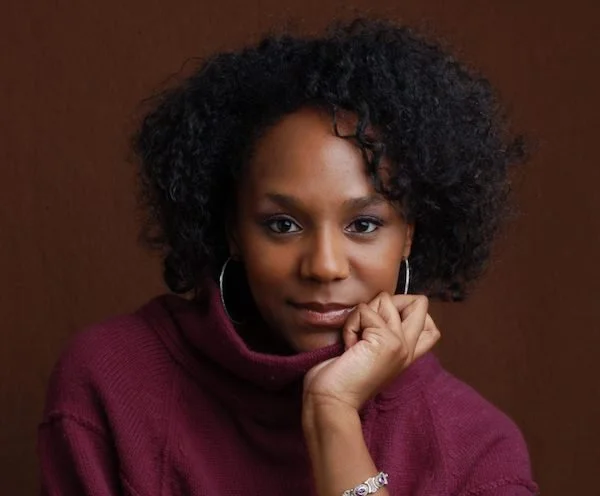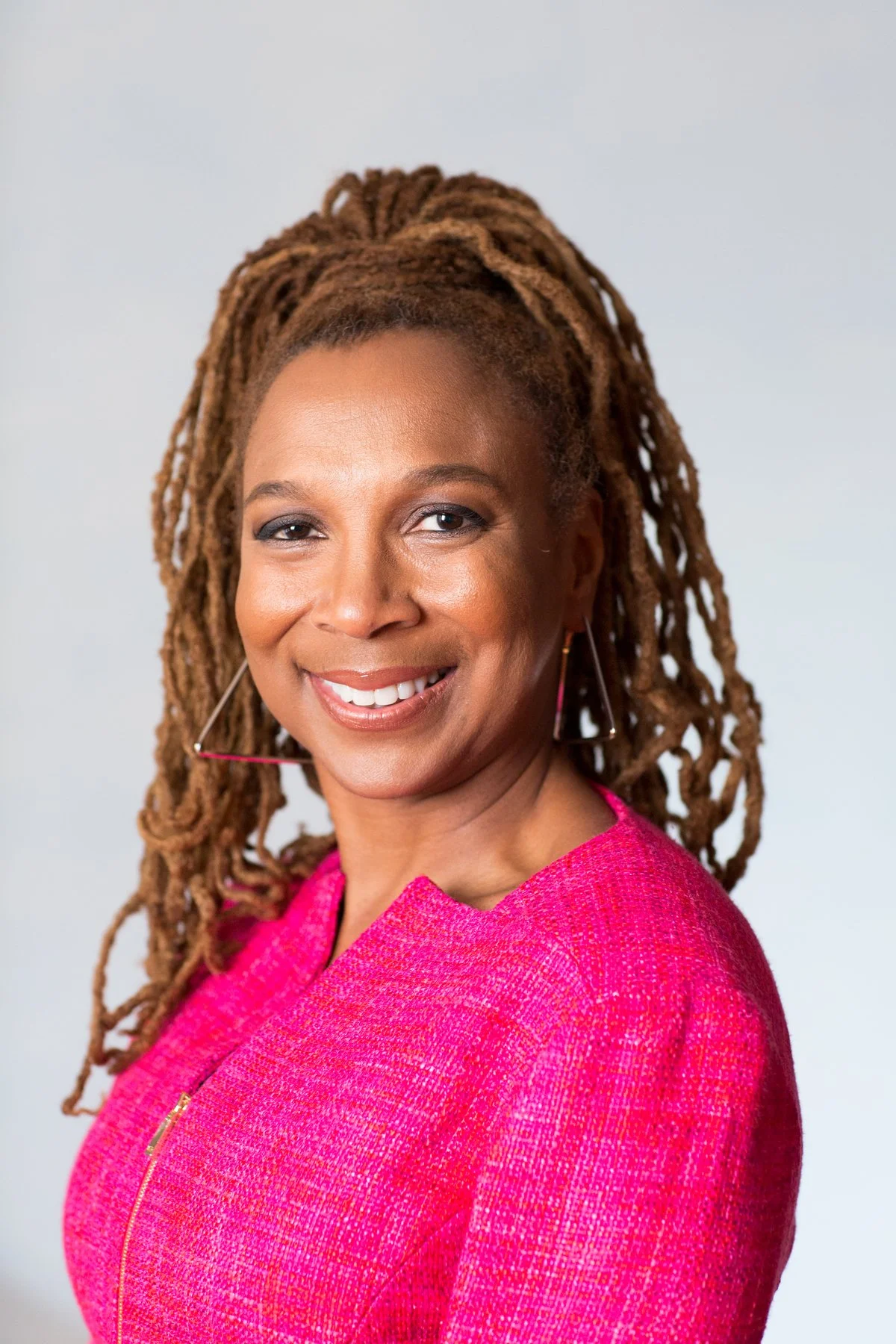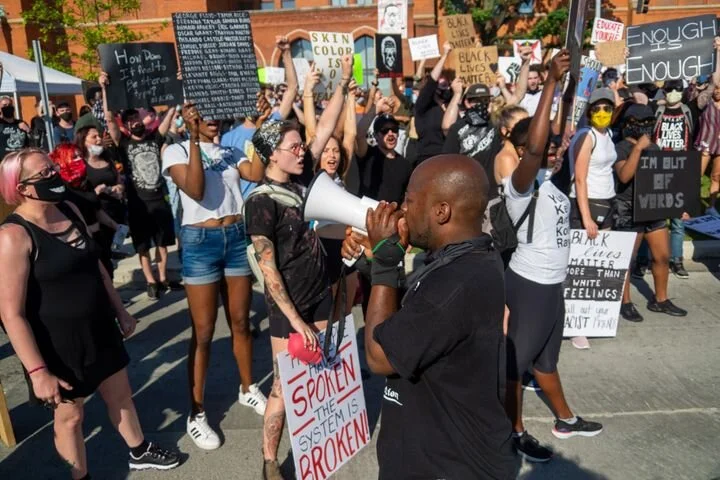Black Liberation Movement
#BlackLivesMatter Movement
Movement Breakdown
The Black Liberation Movement represents a profound response to centuries of racism and white supremacy, tracing its origins back to a long-standing struggle for equality and justice. It has recently witnessed a dynamic resurgence championed by various Black intellectuals, historians, educators, and community leaders. These advocates are deeply invested in reasserting the rights and dignity of Black individuals, striving to undo the systemic injustices that have historically marginalized them. The movement's current phase is marked by a concerted effort to achieve self-reliance and economic empowerment within the Black community, underscored by a collective determination to forge a future where Black individuals can thrive free from the constraints of systemic inequality.
The establishment of the Black Lives Matter (BLM) movement in 2013 stands as a pivotal moment in this modern revival, ignited by the acquittal of the individual responsible for the death of Trayvon Martin. As a global organization with chapters in the United States, the United Kingdom, and Canada, the Black Lives Matter Foundation, Inc., embodies a commitment to eradicating white supremacy and challenging the systemic violence that disproportionately affects Black communities. The foundation's mission extends beyond confrontation, aiming to foster environments where Black creativity and joy are celebrated and initiate community-driven projects to improve safety and wellbeing in Black neighborhoods. Through these efforts, the BLM movement seeks to address immediate instances of injustice and lay the groundwork for enduring societal change.
A multifaceted approach to social activism is at the core of Black Lives Matter's strategy. By mobilizing community action, engaging in policy advocacy, and leveraging the power of digital media, the movement amplifies the voices of those who have been silenced and highlights the critical issues facing Black individuals today. This approach has resulted in significant strides toward dismantling the structures of oppression and has galvanized public support for reforms aimed at achieving racial justice. As it continues to evolve, Black Lives Matter remains a beacon of hope and a driving force for transformative change, advocating for a world where every Black life is valued and protected.
Communities Affected
Black, African American, Afro-Latine, Afro-Caribbean, African Descending Folks
in the United States & Globally
Major Issues Affecting US Black Communities
Police Brutality & Over-policed Communities: Black communities often face disproportionate levels of police surveillance, harassment, and violence. This issue is emblematic of broader systemic racism within law enforcement, leading to tragic incidents of brutality and fatalities without accountability.
Racial Discrimination: Persistent prejudicial treatment based on race affects Black individuals in employment, education, housing, and daily social interactions, perpetuating inequality and limiting opportunities for success and well-being.
Inequitable Justice Systems & Mass Incarceration: The justice system disproportionately targets Black individuals, leading to higher rates of arrest, conviction, and harsher sentencing. This systemic bias contributes to mass incarceration, affecting millions of Black lives and their families.
Lack of Mental & Physical Health Care: There's a significant lack of accessible and culturally competent health care services for Black communities, resulting in untreated physical and mental health issues and higher morbidity and mortality rates compared to other populations.
Less Access to Maternal Care & Higher Baby Mortality Rates: Black women face higher risks during pregnancy and childbirth, with significantly less access to quality maternal care. This contributes to higher infant and maternal mortality rates in Black communities.
Inadequate Care to Address & Heal Intergenerational Trauma: The lasting effects of slavery, segregation, and ongoing racism create intergenerational trauma, with insufficient resources devoted to healing and mental health support within Black communities.
Wealth Disparity, Income Inequality & Loan Discrimination: Economic policies and practices have historically marginalized Black individuals, leading to significant wealth gaps, income inequality, and discrimination in lending practices, which hinder the ability to build wealth.
Less Access to Affordable Housing & Systematic Displacement: Gentrification and discriminatory housing policies limit access to affordable housing for Black families, leading to displacement and homelessness.
Underfunded Education Systems & Biased Standardized Testing: Schools in predominantly Black neighborhoods often receive less funding and resources, affecting the quality of education. Additionally, standardized testing practices can perpetuate biases and inequalities.
Environmental Disparity: Black communities are more likely to be located in areas with poor environmental conditions, such as proximity to pollutants and lack of green spaces, leading to health issues and a lower quality of life.
Disproportionate Political Representation: Despite making up a significant portion of the population, Black individuals are underrepresented in political offices, leading to a lack of influence over laws and policies that affect their lives.
Voter Suppression: Black voters face various barriers to voting, including strict ID laws, polling place closures, and gerrymandering, which dilute their political power and representation.
Cultural Erasure & Appropriation: Black culture is often commodified and appropriated without recognition or respect for its origins, while historical contributions by Black individuals are minimized or erased.
Compounded Violence against Black Queer & Trans Folks: Black LGBTQ+ individuals face layered discrimination and violence due to their race and sexual orientation or gender identity, leading to higher rates of harm and marginalization.
Immigrant & Refugee Discrimination/Deportation: Black immigrants and refugees face unique challenges, including discrimination, harsh immigration policies, and a higher risk of deportation, compounding the difficulties of adjusting to a new country.
Social Leaders of The Movement
Alicia Garza
Co-Founder of Black Lives Matter & Special Projects Director for the National Domestic Workers Alliance
Patrisse Khan-Cullors
Co-Founder and Strategic Advisor of Black Lives Matter
Opal Tometi
Co-Founder of Black Lives Matter & Executive Director of Black Alliance for Just Immigration
Johnetta Elzie
Co-founder of We The Protesters and Co-Editor of This Is the Movement
Brittany Packnett Cunningham
Co-founder of Campaign Zero and a former member of the Ferguson Commission and President Obama's Task Force on 21st Century Policing.
DeRay McKesson
Co-founder of Campaign Zero and Co-Editor of This Is the Movement
Bree Newsome Bass
An artist, activist, and public speaker focusing on racial justice, police violence, and structural inequality. Her work continues to inspire and mobilize activists across the country.
Kimberlé Williams Crenshaw
Professor of Law at UCLA School of Law and Columbia Law School and Co-Founder and Executive Director of the African American Policy Forum
Tamika D. Mallory
A social justice leader and movement strategist, Tamika Mallory co-founded Until Freedom, which addresses systemic and racial injustice. She also served as the national co-chair for the Women’s March.
Political Leaders of The Movement
Barack Obama
44th President of the United States, and first US African American President
Kamala Harris
Vice President of the United States and the first African American-Asian -Woman Vice President
Colin Powell
Former US Secretary of State; Chairman of the Joint Chiefs of Staff
Carol Moseley Braun
First African American woman elected to the U.S. Senate
Hakeem Jeffries
First African American to lead a major political party in either chamber of Congress
John Conyers Jr
Served 50 years in the US House of Representatives, founding member of the Congressional Black Caucus
Economic Leaders of The Movement
Oprah Winfrey
Philanthropist, CEO of Harpo Productions, Chairwoman of OWN (Oprah Winfrey Network)
Marc Philpart
Executive Director of the California Black Freedom Fund
Rajasvini Bhansali
Executive Director of Solidaire Network | Black Liberation Pooled Fund
Community Organizations Involved
Forward Movements
Policing Reforms: Following the tragic death of George Floyd in Minneapolis, numerous cities across the United States have undertaken significant policing reforms. These reforms directly result from Black Lives Matter advocacy and include reallocating funds from police budgets to community-based services, implementing rigorous use-of-force guidelines, and enhancing transparency and accountability within police departments.
Cultural Shift: The Black Lives Matter movement has catalyzed a significant cultural transformation, leading to an increased emphasis on Black narratives and perspectives within the media and entertainment sectors. This shift is also evident in the reassessment and, in some cases, removal of monuments and symbols associated with historical racism, reflecting a broader societal reevaluation of racial history and values.
Corporate Change: Spurred by the movement, numerous corporations have initiated more aggressive approaches to combating systemic racism, from discontinuing racially insensitive brands to instituting more robust diversity and inclusion programs. These changes mark a departure from previous corporate practices and signal a growing recognition of the importance of corporate responsibility in addressing racial inequalities.
Global Impact: The reach of the Black Lives Matter movement extends far beyond the United States, igniting a worldwide dialogue on issues of race, equality, and justice. This global conversation has manifested in protests, policy debates, and increased solidarity across borders, highlighting the universal resonance of the movement's core messages.
Setbacks
Decrease in Public Support: Despite its initial surge in popularity, public support for the Black Lives Matter movement has experienced a decline. Recent data indicates that only about half of US adults now support the movement, a noticeable drop from the overwhelming support observed following George Floyd's murder.
Perceptions of Divisiveness: The movement faces criticism from certain quarters that label it divisive and counterproductive. These perceptions challenge the movement's efforts to foster a more inclusive and equitable society, complicating its mission to achieve widespread societal change.
Limited Perceived Effectiveness: Public confidence in the movement's ability to effect meaningful change in race relations and improve the lives of Black individuals appears to be waning. A significant portion of the American populace perceives the movement as having made little to no progress in addressing these critical issues.
Partisan Divide: Support for the Black Lives Matter movement is sharply divided along political lines, starkly contrasting Democratic and Republican viewpoints. This division presents obstacles to achieving bipartisan support for policy reforms and complicates the movement's efforts to enact widespread legislative and social changes.
How Black Communities Have & Continue To Act
MOBILIZING IN PROTEST in recent years has sparked global unrest that has put immense pressure on local, state, and federal governments to enact and reform legislation. (i.e
BUYING BLACK as its movement has allowed black consumers, businesses, organizations, and banks to circulate Black wealth within Black communities. (i.e. WeBuyBlack.com)
VOTING exclusively for candidates with a proven social, political, and economic record for empowering and supporting Black communities. Practicing voting this way has allowed and continues to enable Black communities to gain more political power on local, state, and federal levels.
JOINING our community boards to advocate for more Black representation in leadership and on behalf of issues that affect our local Black communities the most.
VOLUNTEERING at our local, Black- community organizations, centers, gardens, parks, non-profit churches, and schools. If some of these community assets don’t exist, work with community leaders to fund their creation and long-term development.
EMPOWERING OUR YOUTH to follow in these action steps. In doing so, creating more socially, politically, and economically- educated, aware, and conscious generations of #BlackExcellence.
What White and Non-Black POC Communities Can Do To Help
DONATE to the Black/Black-aligned community organizations listed above and encourage your social & personal networks to do the same.
CALL OUT & REPORT all acts of violence and discrimination against Black folks that you witness in person and on social media.
DO THE WORK in understanding and acknowledging your own biases and privileges as a white person or non-Black POC. Reflect on the ways they benefit you and your community at the cost of harming black communities. Actively work on using your privilege to AMPLIFY Black voices, SUPPORT Black businesses, and CREATE OPPORTUNITIES for Black communities.
If you are in positions of power (i.e., business owner, supervisor, law maker, board member, professor, doctor, lawyer, judge, etc.), ensure that all of your social, political, and economic practices, as well as the practices of your colleagues are rooted in equity.
HOLD your white & non-Black social and professional networks accountable for cultural appropriation (i.e., Black-face, saying the N-word, stealing black art, hair, music, etc.). Check your intentions for why you stand with Black Liberation Movements; is it to practice your humanity, or is it to gain proximity & access to Black culture?
STANDING IN SOLIDARITY with Black lives and communities is not trendy, nor is it easy, short-term work; this work is challenging and oftentimes uncomfortable, but if you genuinely support this movement, stand with us until we truly reach liberation, justice, and equality.
Learn More
CNN/ The rise of Black Lives Matter: Trying to break the cycle of violence and silence
ABC/Black Lives Matter co-founder says what protesters want is simple: Accountability
The Guardian/Black Lives Matter: birth of a movement
HuffPost/Racism Is A Public Health Crisis.
ACLU/How Black Lives Matter Changed the Way Americans Fight for Freedom
Medium/Hearing the Queer Roots of Black Lives Matter
Relevant Hashtags
#BlackLivesMatter #BLM #DefundThePolice #CounselorsNotCops #BlackQueerAndTransLivesMatter #BlackLiberationMovement #BlackExcellence #BlackBoyJoy #BlackGirlMagic
Statistics on Police Violence Against Black Communities
Reported By: Mappingpoliceviolence.org Methodology
























































